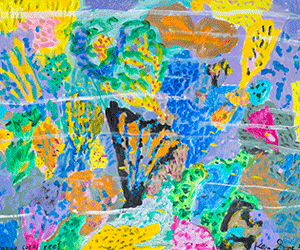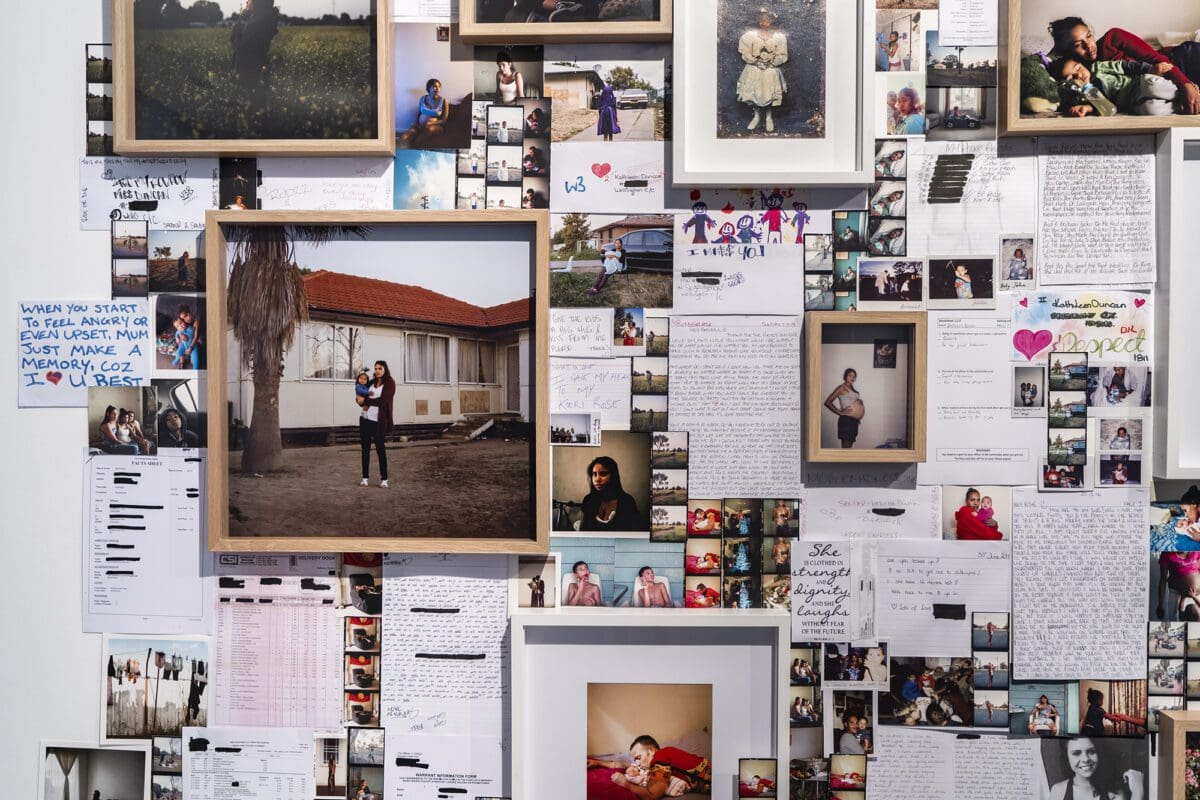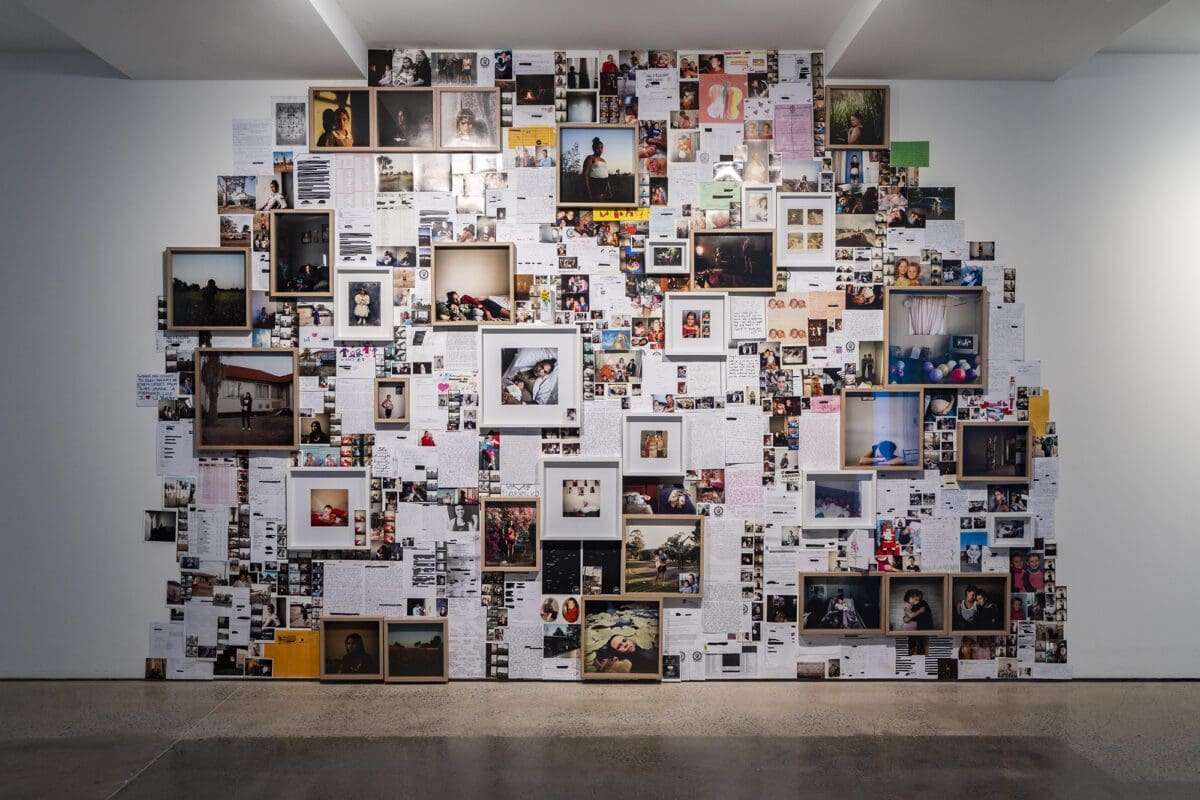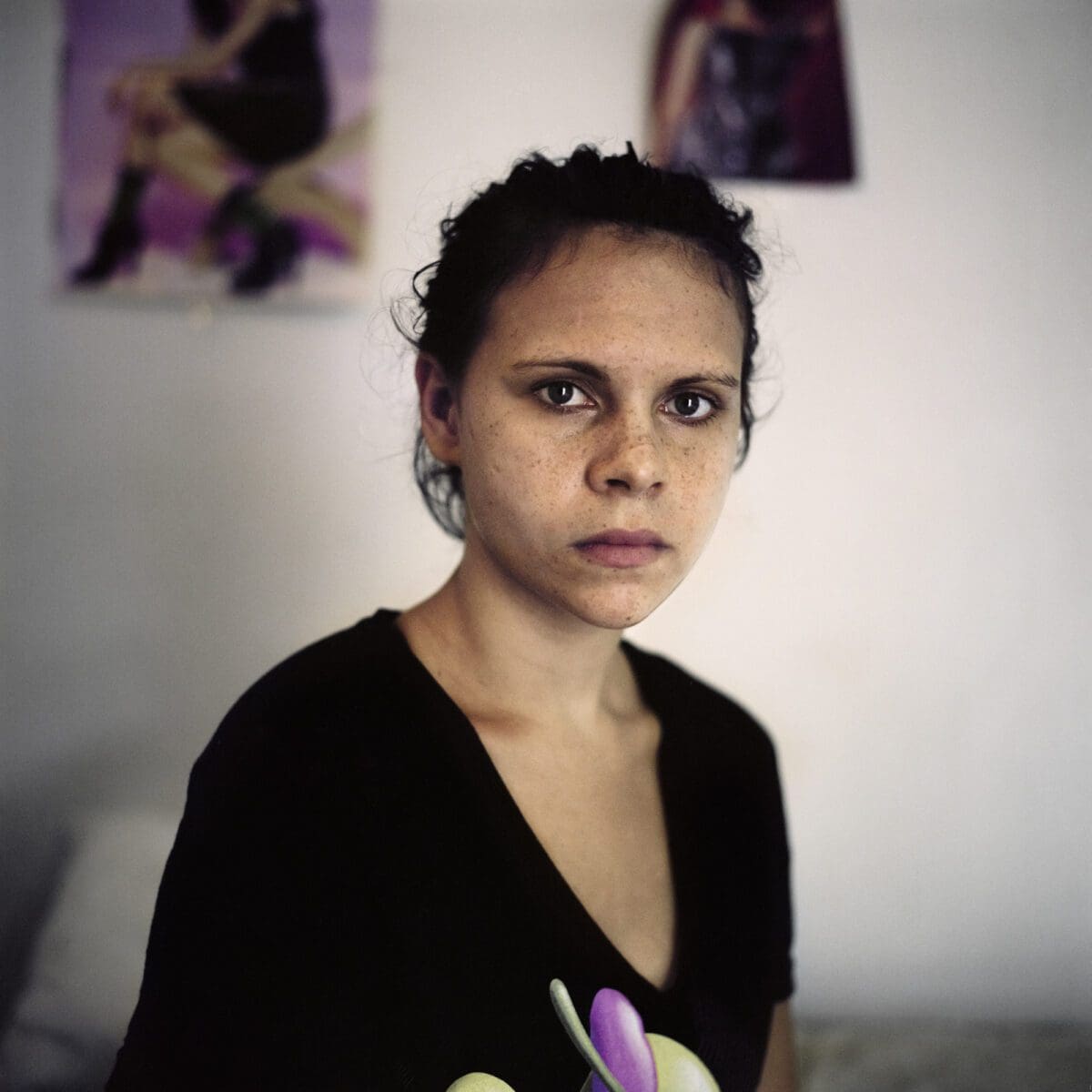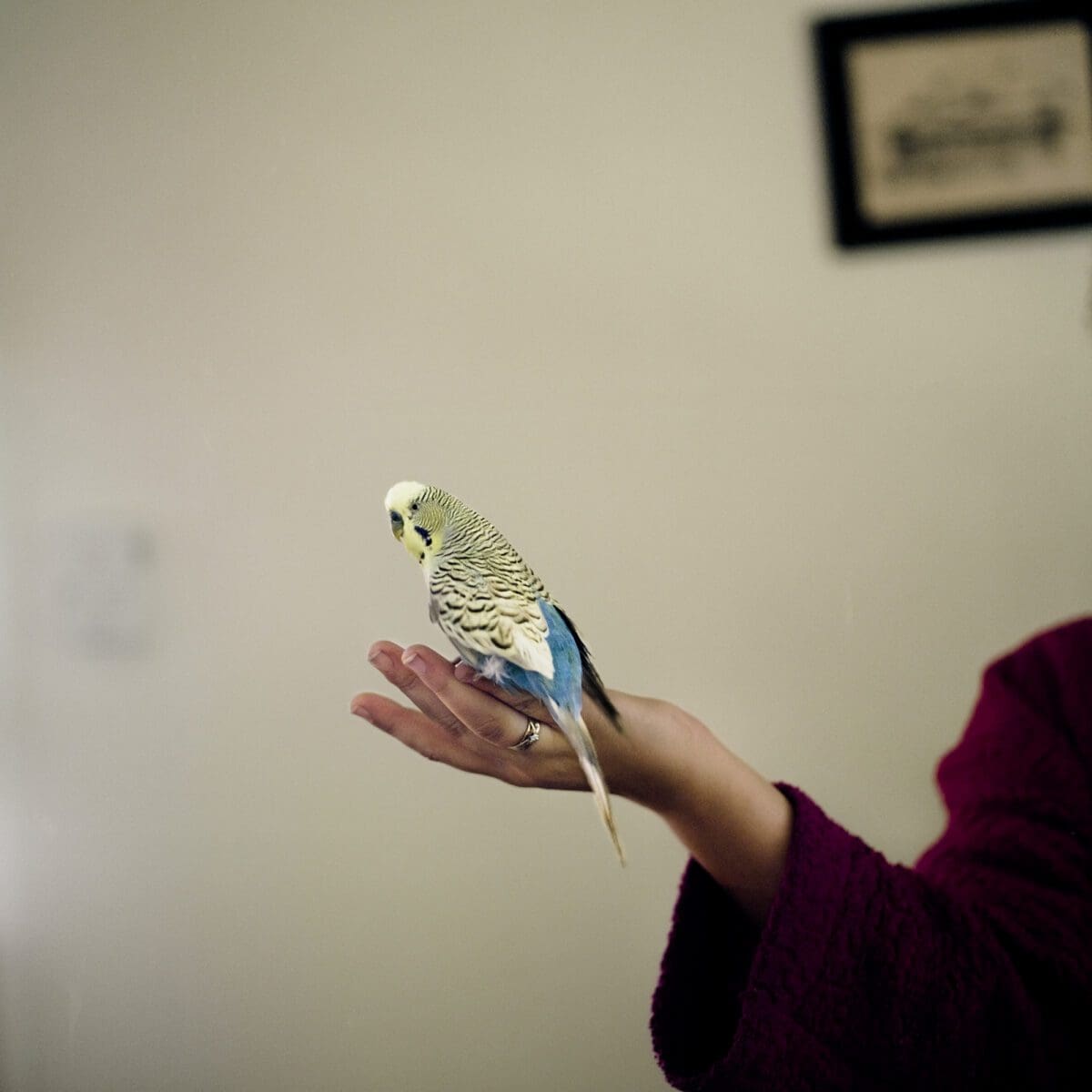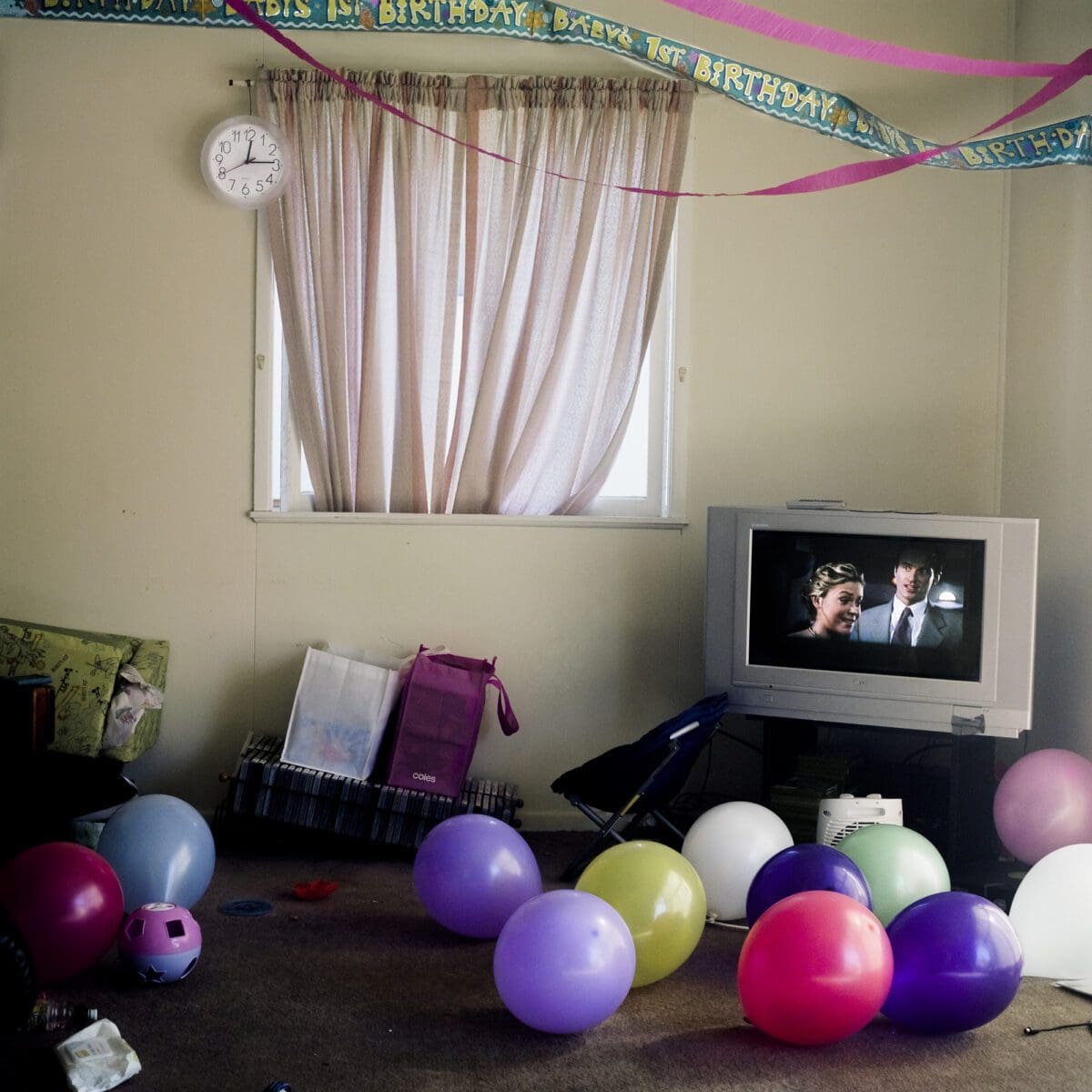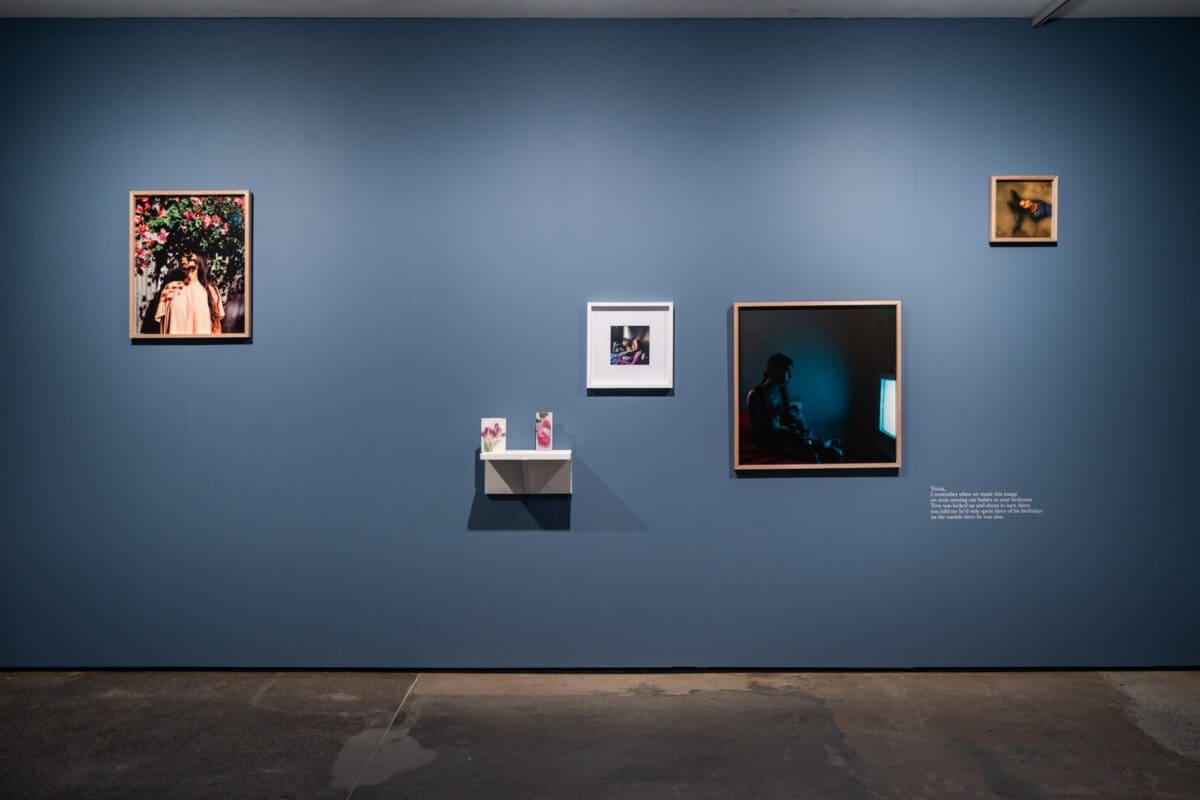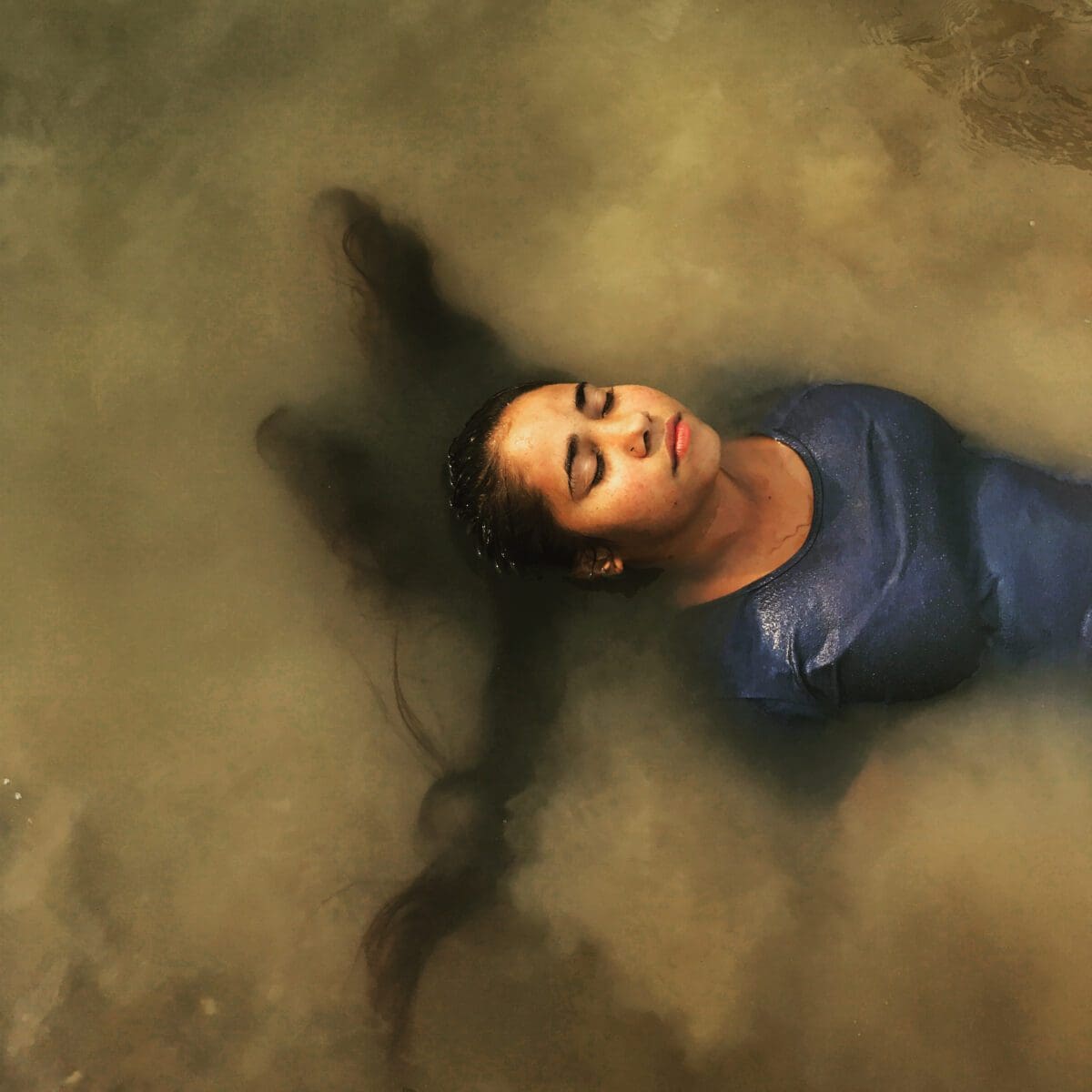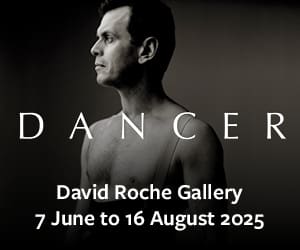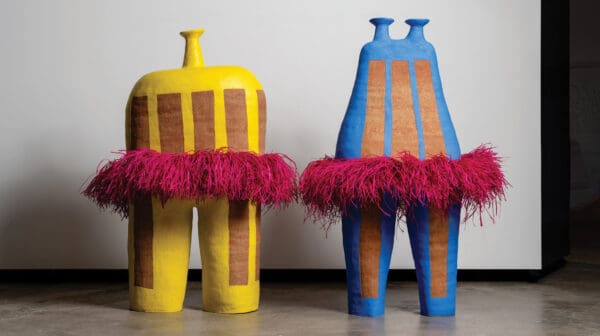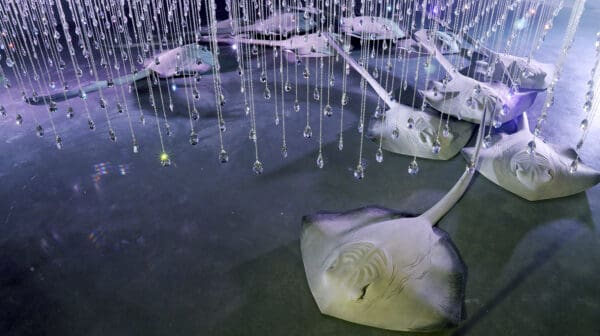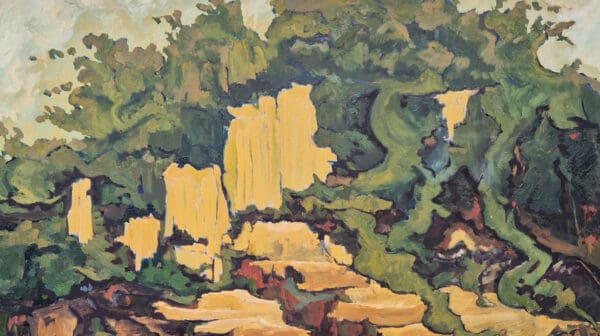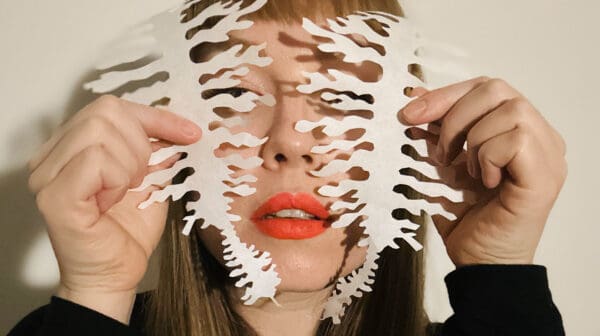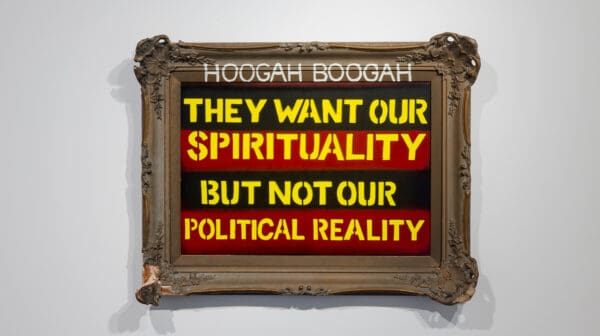Raphaela Rosella remembers the ways in which forces of surveillance shadowed her early life. The internationally renowned artist was raised on Bundjalung Country in the Northern New South Wales town of Nimbin. There, she says, her friends and family were subject to a regular police presence. But when faced with the prospect of danger, the community rallied together. This instinct would prove important.
“The word ‘taxi’ would echo around town and everybody would look out for each other—it was a codeword for the police,” she says. “In Nimbin, there are people who have experienced trauma, who are living through poverty or dealing with mental health issues. What other communities would sweep under the table, our community tried its best to support one another.”
“Growing up, my family didn’t have a car so how could my mum get a job in Lismore? There weren’t many jobs in Nimbin, especially for a single mum.”
“In 2018, I went to a Sisters Inside conference and heard [abolitionist] Angela Davis talk about abolition feminism, which requires us to reimagine our communities without relying on a criminal legal system comprised of policing, prisons, and punishment. I was like, ‘Oh my God, I grew up in a community that functioned that way.’ We didn’t call the police, we turned to our community during conflict.”
Rosella, who is of Australian-Italian heritage, was always keenly aware of how the imperative to survive could prescribe your choices. “Growing up, my family didn’t have a car so how could my mum get a job in Lismore? There weren’t many jobs in Nimbin, especially for a single mum.”

At 15, she started photographing her community. During the same period, she says, young women around her were becoming mothers. Her twin, Mimi, became a mother during her teenage years, while her stepsister, Gillianne, had already welcomed five babies by the age of 25. Rosella says, “Instead of addressing the underlying causes of addiction and recognising the lasting effects of unresolved trauma, the state resorts to a system that perpetuates further harm through criminalisation.” This resulted in several women in her life becoming relentlessly imprisoned, including Gillianne.
“I was looking at the complexities of our lived experiences and this burden of low expectations from broader Australian society,” she says. “When a woman is incarcerated, she has children, families that she cares for. [There’s] a massive impact.”
“The show features Rosella’s portraits of her friends and family members from across Nimbin, Lismore, Casino and Moree, moments of tenderness between a mother and her toddler, the quiet interiority of her subjects lit by a window, a TV set.”
Rosella started to assemble a paper trail. “I noticed this bureaucratic violence, how paperwork was used as a form of oppression,” she explains.
Official records—court reports, prison identification cards, criminal records—tell one kind of story. They signify authority and power. But what could a counter-archive look like? This tension animates You’ll Know It When You Feel It, an exhibition co-created by Rosella and her collaborators at Brisbane’s Institute of Modern Art.
The show features Rosella’s portraits of her friends and family members from across Nimbin, Lismore, Casino and Moree, moments of tenderness between a mother and her toddler, the quiet interiority of her subjects lit by a window, a TV set. Alongside are works by Rosella’s collaborators, family photographs, recordings of monitored phone calls and a collage in which handwritten letters and notes testify to the exchanges between women who have been imprisoned, and those who love them.
“The narrative is around prisoners needing our help but there isn’t an understanding of the relationships that exist inside and outside these carceral borders,” she says. “My sister Gillianne is currently incarcerated and is a massive support to me. We had a visitation on the anniversary of our friend Tammara’s death. She supported me through my grief. Twelve days prior our brother passed away. I wasn’t able to reciprocate that care because I’m reliant on the prison system and when she can call me.”
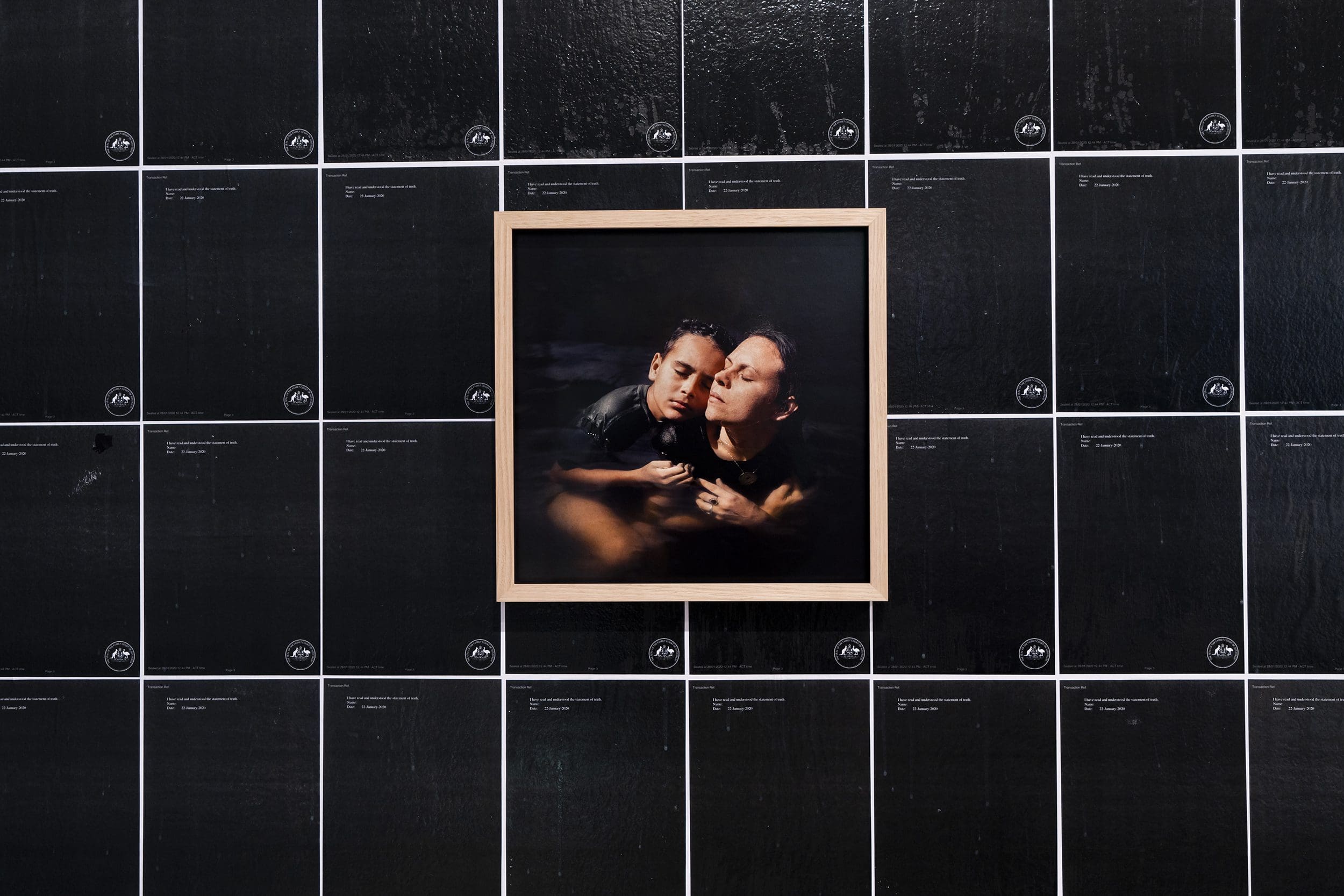
You’ll Know It When You Feel It, which is presented in partnership with Sisters Inside, draws attention to gaps in the judicial archives, the way they substantiate incomplete narratives.
“With official records you’ll notice that when someone is actually doing really well, there’s silence within the documentation,” she explains. “When Tammara was released from prison, she got a job, wasn’t using drugs and was forming relationships with her kids, this wasn’t documented.”
Tammara, she says, corrected inaccuracies in the official records. Buoyed by this legacy, You’ll Know It When You Feel It, uses redaction as a form of resistance—and exhibits this by displaying documents, text blocked out, on the gallery wall. Their impersonal nature is heightened by the intimacy of nearby portraits.
“When Rosie came into my life, she recorded conversations about custody battles and courts, how it had affected me. Having the support, putting forward our own archive has been very healing.”
“During her imprisonment, Tammara was highlighting the errors within these documents, questioning the authority of the archive, whose voices matter and whose are credible,” says Rosella. “These documents have the power to forcibly remove a child from their mother at birth. They have the power to cause immense trauma. But the person who’s writing these documents isn’t held accountable for the errors. And the person who’s inscribed is marked as a ‘criminal’ and a ‘bad mother’.”
You’ll Know It When You Feel It has shown everywhere from the Zagreb Museum of Contemporary Art to France’s Photo Biennale Photoquai. It’s rooted firmly, Rosella says, in ongoing consent and a relational approach to ethics, and has played a central role in legal proceedings, leading to several successful bail and parole applications—and in some cases to a reduced sentence.
Kamilaroi/Biripi woman Nunjul Townsend, whose arresting portrait is among the highlights of the exhibition, has helped co-create the archive. “Due to me losing custody of my eldest son, Rosie [Rosella] thought I would be a great candidate to tell my story about the difficulties of intergenerational trauma,” she says. “That portrait was taken a couple of months after my son was taken off me. I was only 17 then.”
The official documents, she says, have always trailed her. “It affected my parenting and my mental health—being a mother I was constantly ridiculed and misjudged,” she says. “I fell deep into depression because I believed everything in the government documents to be true.”
You’ll Know It When You Feel It, she says, has helped her articulate her story.
“Mostly the women we work with, the co-creators of the archive, we all grew up in Nimbin and all know each other,” she says. “When Rosie came into my life, she recorded conversations about custody battles and courts, how it had affected me. Having the support, putting forward our own archive has been very healing.”
You’ll Know It When You Feel It
Institute of Modern Art
(Brisbane QLD)
On now—19 August

